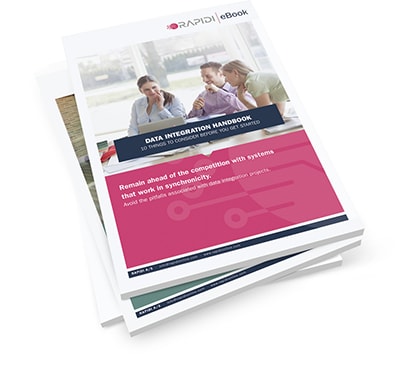Bad data can completely undermine your sales efforts. Research from Experian Data Quality has shown that the average company loses 12% of its revenue as a result of inaccurate data. 95% of organizations see negative impacts from poor data quality, resulting in wasted resources and additional costs, ineffective business initiatives, poor customer experience, delayed data migration projects, and much more.
Even scarier: according to Gartner, 40% of all business initiatives fail to achieve their targeted benefits due to poor data quality. On average, organizations suspect that 29% of their current customer and prospect data is inaccurate in some way.
Don’t let poor data be the gangrene of your organization
Many organizations have troubles getting their sales people to use their CRM system. Even when it is Salesforce. Often, they are too busy calling prospects, mining leads and booking meetings to even remember to log into Salesforce. If they give it a try and find the information is inaccurate or missing, they will most likely not return to the system for information.
However, at the end of the day, sales people want to succeed, and to success, they need accurate customer and prospect data Sales people typically have a lot going on: viewing accounts, emailing prospects, making calls and scheduling appointments. With all this going on, they do not really have time to log data onto Salesforce. If you want them to succeed, they need good data. If your CRM system always contains good data, it will quickly become your sales people’s best ally and you will see adoption boom.

The price to pay for having bad data can be very high. You need to solve your bad data issues, but how do you do that in the most effective way?

Integrate CRM – ERP to achieve good data
One of the most effective ways to improve data quality is to integrate your CRM and ERP systems. For example, a Salesforce-Microsoft Dynamics ERP integration helps you:
- Gain complete visibility of your customers’ needs, buying habits, history and preferences
- Access business-critical information in real-time, increasing the success rate of your sales people
- Cut the time spent on chasing information
- Improve customer experience, as they will not have to repeat the same information to several people in your organization, and because you will only contact them with relevant offers or information.
- Eliminate manual data entries, so prone to human errors
- Streamline processes as information can always be found, without to disturb others in the organization.
- Eliminate the use of parallel, alternative systems that can be mines of valuable information but do not contribute to the overall success of your organization.
Do you want your staff to make informed decisions based on high quality data? Integrate your Salesforce and Microsoft Dynamics systems (or any other CRM and ERP). Nowadays, there are very cost-effective cloud-based solutions that allow fast, automated and secure data integration. Organizations take a much bigger risk in NOT integrating the two systems as they will fail to reap the full benefits of their initial ERP and CRM investments.
How to integrate salesforce with your Microsoft Dynamics ERP system
Learn how to easily integrate your Salesforce CRM with your Microsoft Dynamics ERP by attending our next webinar. You can sign up here.











